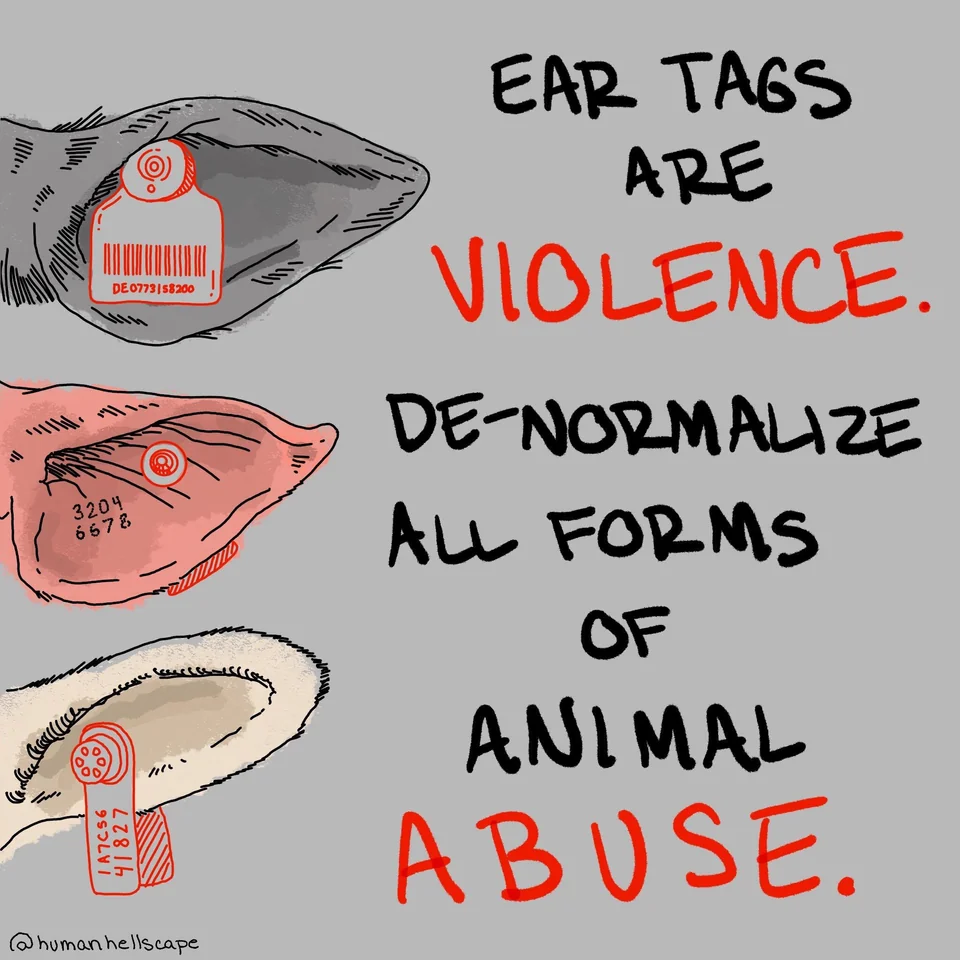Animal cruelty is a pervasive issue that has a profound impact on both the animals involved and society as a whole. The deliberate infliction of physical or emotional harm on animals for human purposes, whether for entertainment, food, or any other reason, is a form of violence that has far-reaching consequences. The detrimental effects of animal cruelty extend beyond the immediate victims, as it also has a significant psychological impact on society. The harm caused to animals not only violates their basic rights but also affects the well-being of individuals and communities. As such, understanding the psychological effects of animal cruelty is crucial in addressing this pressing issue. In this article, we delve into the various ways in which animal cruelty affects society and its individuals, highlighting its ripple effects on mental health, empathy, and social norms. By shedding light on this often overlooked aspect of animal cruelty, we hope to raise awareness and spark meaningful conversations about the importance of creating a more compassionate and empathetic society.
Impact of animal cruelty on society
Animal cruelty has far-reaching consequences on society, impacting not only the animals themselves but also the individuals and communities surrounding them. The maltreatment and abuse of animals reflect deep-rooted issues within our society, such as a lack of empathy, disregard for life, and an acceptance of violence. Witnessing or being aware of acts of animal cruelty can have profound psychological effects on individuals, leading to increased levels of distress, desensitization to violence, and potentially contributing to the development of aggressive behavior. Additionally, animal cruelty is often interconnected with other forms of violence, including domestic abuse and child abuse, further highlighting the detrimental impact it has on society as a whole. By addressing and combating animal cruelty, we can work towards creating a more compassionate and harmonious society for both humans and animals alike.

Consequences of inhumane treatment towards animals
The consequences of inhumane treatment towards animals are wide-ranging and deeply concerning. Firstly, the direct impact on the animals themselves cannot be overstated. They endure physical pain, suffering, and often experience long-term physical and psychological trauma. This treatment goes against basic principles of compassion and respect for living beings.
Furthermore, the consequences extend beyond the individual animals involved. Inhumane treatment towards animals can contribute to the degradation of societal values and empathy. When individuals witness or become aware of such acts, it can erode their trust in humanity and create a sense of helplessness. A society that tolerates or turns a blind eye to animal cruelty risks becoming desensitized to violence in general.
Moreover, inhumane treatment towards animals has been linked to increased rates of violence towards humans. Numerous studies have demonstrated a correlation between animal abuse and other forms of violence, including domestic abuse and acts of violence against fellow human beings. This connection underscores the urgent need to address and prevent animal cruelty to break this cycle of violence.
Additionally, the economic implications of inhumane treatment towards animals should not be ignored. It can lead to negative impacts on industries such as agriculture, tourism, and entertainment, as consumers increasingly demand ethical and humane practices. Businesses that fail to prioritize animal welfare risk damaging their reputation, losing customers, and facing legal consequences.
In conclusion, the consequences of inhumane treatment towards animals are extensive and far-reaching. They not only harm the animals directly involved but also have detrimental effects on society as a whole. By promoting compassion, empathy, and respect for all living beings, we can strive towards a more just and harmonious society.
Long-term effects on mental health
The mistreatment of animals can also have long-term detrimental effects on the mental health of individuals and society as a whole. Witnessing or participating in acts of animal cruelty can result in feelings of guilt, shame, and remorse, leading to the development of psychological disorders such as depression, anxiety, and post-traumatic stress disorder (PTSD). These negative emotions and experiences can linger for years, impacting an individual’s overall well-being and ability to form healthy relationships.
Furthermore, research suggests that a correlation exists between animal cruelty and an increased risk of engaging in violent behavior towards humans. Individuals who exhibit a disregard for the welfare of animals may demonstrate a lack of empathy and compassion towards their fellow human beings. This can perpetuate a cycle of violence and contribute to a society plagued by aggression and cruelty.
Addressing the long-term effects of animal cruelty on mental health requires a comprehensive approach that includes education, awareness campaigns, and stringent enforcement of animal protection laws. By fostering empathy, compassion, and respect for all living beings, we can work towards creating a society that values the well-being of both animals and humans, promoting a healthier and more compassionate world for all.
Links to violent behavior in humans
Research has shown a concerning link between acts of animal cruelty and an increased propensity for violent behavior in humans. Numerous studies have found that individuals who engage in animal abuse are more likely to exhibit aggressive tendencies towards other people as well. This correlation raises important questions about the underlying psychological factors that contribute to such behavior. While it is crucial to acknowledge that not all individuals who mistreat animals will go on to harm humans, the presence of this link underscores the importance of early intervention and prevention efforts. By addressing the root causes of violent behavior and promoting empathy and compassion towards all living beings, we can strive to create a safer and more humane society.
Contributing to a desensitized society
One concerning consequence of widespread exposure to acts of animal cruelty is the potential contribution to a desensitized society. In today’s digital age, graphic images and videos depicting animal abuse can easily be accessed and shared across various platforms. This constant exposure to such disturbing content can gradually diminish our emotional response and sensitivity towards these acts of cruelty. As a result, individuals may become desensitized to the suffering of animals, viewing it as normal or acceptable behavior. This desensitization can extend beyond animal cruelty, impacting our empathy and compassion towards other forms of violence and suffering as well. Additionally, the desensitization towards animal cruelty can perpetuate a cycle of violence by normalizing aggressive and harmful behaviors, ultimately posing a threat to the overall well-being and moral fabric of our society. It is crucial to recognize the potential negative consequences of this desensitization and actively work towards cultivating empathy and compassion in order to counteract its effects.
Diminished empathy and compassion levels
Research has shown that prolonged exposure to acts of animal cruelty can lead to diminished levels of empathy and compassion within society. When individuals repeatedly witness scenes of violence and suffering towards animals, it can gradually erode their ability to connect emotionally with the pain and distress experienced by these innocent creatures. This diminished empathy not only affects attitudes towards animals but can also extend to interpersonal relationships and interactions with fellow human beings. The decline in compassion levels can have far-reaching consequences, leading to a breakdown in social bonds and a lack of concern for the well-being of others. It is essential to address this issue proactively, promoting empathy and compassion as fundamental values within our society to ensure a more empathetic and caring future.
Normalizing violence towards living beings
It is disheartening to observe the normalization of violence towards living beings within our society. This concerning trend not only perpetuates the suffering of animals but also has detrimental effects on our collective well-being. When acts of cruelty towards animals become normalized, it creates a culture in which empathy and compassion are devalued, leading to a desensitization to the pain and suffering of all living beings. This normalization of violence can have profound psychological impacts, contributing to a society that lacks empathy, fosters aggression, and undermines the principles of justice and fairness. It is crucial that we recognize the importance of promoting kindness, respect, and compassion towards all living beings to cultivate a healthier and more harmonious society.

Creating a cycle of violence
The perpetuation of violence towards animals can create a dangerous cycle that extends beyond the immediate victims. When individuals engage in acts of cruelty towards animals, they are more likely to develop aggressive and violent tendencies, which can then be directed towards other human beings. This cycle of violence is deeply concerning, as it not only harms animals but also poses a significant threat to the safety and well-being of our society as a whole. It is crucial that we address and break this cycle by promoting education, awareness, and interventions aimed at preventing and rehabilitating individuals who engage in animal cruelty. By doing so, we can work towards creating a society that values empathy, compassion, and non-violence, fostering a safer and more harmonious environment for all.
Negative impact on community well-being
The pervasive presence of animal cruelty within a community can have a profoundly negative impact on its overall well-being. Such acts of cruelty can erode trust, instill fear, and contribute to an atmosphere of violence and hostility. Witnessing or being aware of animal abuse can evoke feelings of helplessness, sadness, and anger among community members, leading to a decline in their emotional and psychological well-being. Additionally, the knowledge that acts of cruelty towards animals are occurring within the community may tarnish its reputation, deterring potential residents, businesses, and visitors. Furthermore, the disregard for the welfare of animals reflects a lack of empathy and compassion, which can erode the moral fabric of a community and hinder its ability to foster meaningful connections among its members. It is imperative that communities recognize and address the negative effects of animal cruelty to ensure the well-being and harmony of all its inhabitants.
Urgent need for awareness and action
In order to mitigate the detrimental effects of animal cruelty on society, there is an urgent need for heightened awareness and swift action. Ignoring or downplaying the issue not only perpetuates the suffering of innocent animals but also perpetuates a culture of violence and indifference. It is crucial that individuals, organizations, and communities come together to promote education and awareness about the ethical treatment of animals, implementing stringent laws and regulations to ensure their protection. By fostering a sense of empathy and compassion towards all living beings, we can create a more harmonious and humane society for both humans and animals alike. The time for action is now, as the consequences of inaction are far-reaching and deeply damaging to our collective well-being.
In conclusion, the psychological effects of animal cruelty on society cannot be ignored. The long-term impact on individuals who witness or perpetrate acts of animal cruelty can lead to desensitization, empathy deficits, and potentially even violent behavior towards humans. It is crucial for society to address and prevent animal cruelty through education, enforcement, and support for mental health resources. By doing so, we can create a more compassionate and harmonious society for both humans and animals alike.
FAQ
How does witnessing or being exposed to animal cruelty impact an individual’s mental health and well-being?
Witnessing or being exposed to animal cruelty can have a significant impact on an individual’s mental health and well-being. It can cause feelings of distress, sadness, anger, and helplessness. Witnessing such acts can lead to the development or exacerbation of anxiety, depression, post-traumatic stress disorder, or other mental health conditions. The cruelty may also trigger a loss of faith in humanity and a sense of disillusionment. It can contribute to feelings of guilt, as individuals may feel powerless to stop or prevent animal cruelty. Overall, exposure to animal cruelty can have a profound negative impact on an individual’s mental health and well-being.
What are the potential long-term psychological effects of animal cruelty on society as a whole?
The potential long-term psychological effects of animal cruelty on society as a whole can include desensitization to violence, an increase in aggressive behavior, and a diminished sense of empathy and compassion. Witnessing or participating in acts of animal cruelty can negatively impact individuals’ mental well-being, leading to the normalization of violence and a lack of empathy towards both animals and other humans. This can contribute to a cycle of abuse and violence in society, affecting relationships, social dynamics, and overall mental health. Addressing and preventing animal cruelty is crucial for promoting a more compassionate and empathetic society.
How does animal cruelty contribute to the desensitization of violence in individuals, and what are the implications for society?
Animal cruelty contributes to the desensitization of violence in individuals by normalizing and trivializing acts of harm towards living beings. Witnessing or participating in animal cruelty can desensitize individuals to the suffering of others, making them more likely to engage in or tolerate violence towards humans as well. This desensitization has serious implications for society as it can lead to an increase in violent behavior, decreased empathy, and a disregard for the well-being of others. It is crucial to address and prevent animal cruelty to promote a more compassionate and nonviolent society.
Are there any specific populations or demographics that may be more susceptible to experiencing negative psychological effects from animal cruelty? If so, why?
Yes, children and individuals with a history of trauma or mental health disorders may be more susceptible to experiencing negative psychological effects from animal cruelty. Children are still developing emotionally and may be more sensitive to witnessing or hearing about acts of cruelty towards animals. Individuals with a history of trauma or mental health disorders may have heightened sensitivity and may be triggered by acts of animal cruelty, potentially exacerbating their symptoms. Additionally, individuals who have strong empathy towards animals or who work closely with animals may also be more susceptible to experiencing negative psychological effects.
Can the psychological effects of animal cruelty extend beyond individuals and impact the overall social fabric of a community or society? If so, in what ways?
Yes, the psychological effects of animal cruelty can extend beyond individuals and impact the overall social fabric of a community or society. Witnessing or participating in acts of animal cruelty can desensitize individuals to violence and harm, leading to a more accepting attitude towards aggression and cruelty in general. This can contribute to a culture of violence and aggression within the community or society. Additionally, studies have shown that animal cruelty is often linked to other forms of violence, such as domestic abuse and child abuse, which can further destabilize the social fabric. Overall, animal cruelty can have far-reaching consequences on the psychological well-being and values of a community or society.















































